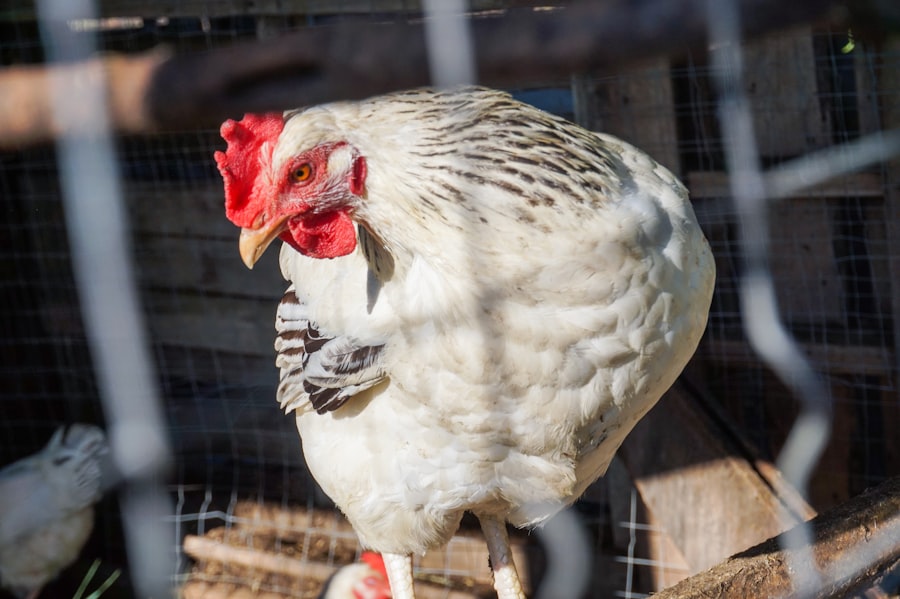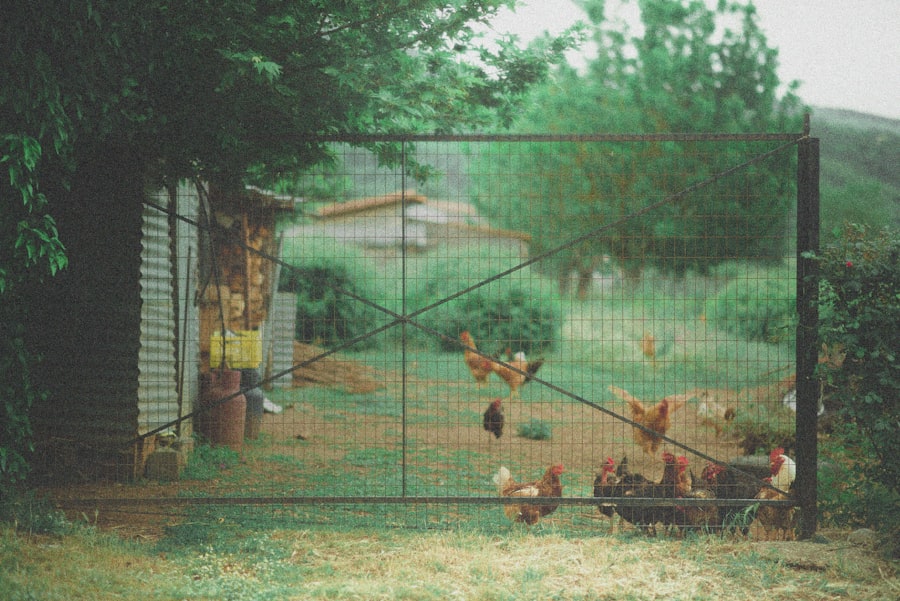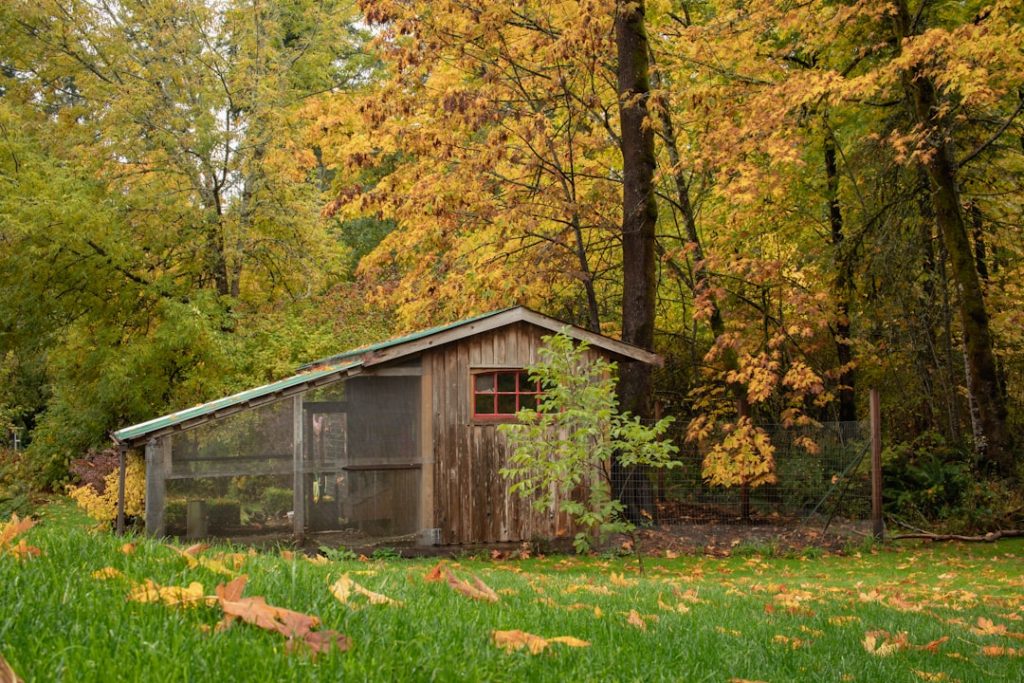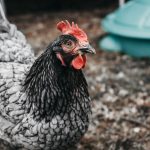When selecting chicken breeds for a backyard flock, several factors should be considered. Climate is a crucial aspect, as some breeds are better adapted to cold weather, while others thrive in warmer conditions. The purpose of the flock is also important; certain breeds are known for their egg-laying capabilities, while others are valued for meat production.
Temperament is another significant consideration. Some breeds are docile and friendly, making them suitable for families with children, while others may be more skittish. The size of the breed should also be taken into account, especially if space is limited.
Smaller breeds require less room, whereas larger breeds may need more space to roam. Climate adaptability, purpose (egg-laying or meat production), temperament, and size are all important factors to consider when choosing chicken breeds for a backyard flock. The ideal breed will depend on the specific needs and preferences of the flock owner, as well as the local environment and available space.
Table of Contents
- 1 Coop and run setup
- 2 Feeding and watering
- 3 Health and hygiene
- 4 Handling and socializing
- 5 Predation and security
- 6 City regulations and ordinances
- 7 FAQs
- 7.1 What are the benefits of keeping chickens in your yard?
- 7.2 What do chickens need to thrive in a yard?
- 7.3 How much space do chickens need in a yard?
- 7.4 What are some common predators of chickens in a yard?
- 7.5 Are there any local regulations or ordinances to consider when keeping chickens in a yard?
- 7.6 How do you keep chickens healthy in a yard?
Key Takeaways
- When choosing a breed, consider factors such as egg production, temperament, and climate adaptability
- Set up a secure coop and run to protect chickens from predators and provide adequate space for exercise
- Provide a balanced diet with access to fresh water at all times
- Regularly clean the coop and monitor for signs of illness to maintain good health and hygiene
- Handle chickens gently and socialize them from a young age to ensure they are comfortable around humans
- Implement security measures to protect chickens from predators, and be aware of any city regulations or ordinances regarding chicken keeping
Coop and run setup
The Coop: A Safe and Comfortable Space
When it comes to the coop, you’ll want to make sure it provides enough space for your chickens to roost and lay eggs comfortably. Additionally, the coop should be well-ventilated to prevent moisture buildup and ammonia levels from rising. It’s also important to provide nesting boxes for your hens to lay their eggs in peace.
The Run: A Space for Exercise and Exploration
In terms of the run, it’s important to provide enough space for your chickens to roam and forage. This not only keeps them physically active and healthy but also allows them to exhibit natural behaviors such as scratching and dust bathing.
Safety and Security: Protecting Your Flock
You’ll also want to make sure the run is secure from predators such as foxes, raccoons, and birds of prey. This can be achieved by using sturdy fencing and adding a cover to prevent aerial attacks.
Feeding and watering

Proper nutrition is essential for keeping your backyard chickens healthy and productive. When it comes to feeding, it’s important to provide a balanced diet that includes a mix of grains, protein, vitamins, and minerals. This can be achieved by offering a commercial feed specifically formulated for laying hens, as well as supplementing with kitchen scraps and treats such as mealworms or fruits and vegetables.
In addition to feeding, it’s crucial to provide clean and fresh water at all times. Chickens need access to water throughout the day to stay hydrated and maintain their overall health. It’s important to regularly clean and refill waterers to prevent the buildup of bacteria and algae.
Additionally, during the winter months, it’s important to prevent water from freezing by using heated waterers or regularly replacing frozen water with fresh water. Proper nutrition is essential for keeping your backyard chickens healthy and productive. When it comes to feeding, it’s important to provide a balanced diet that includes a mix of grains, protein, vitamins, and minerals.
This can be achieved by offering a commercial feed specifically formulated for laying hens, as well as supplementing with kitchen scraps and treats such as mealworms or fruits and vegetables. In addition to feeding, it’s crucial to provide clean and fresh water at all times. Chickens need access to water throughout the day to stay hydrated and maintain their overall health.
It’s important to regularly clean and refill waterers to prevent the buildup of bacteria and algae. Additionally, during the winter months, it’s important to prevent water from freezing by using heated waterers or regularly replacing frozen water with fresh water.
Health and hygiene
Maintaining the health and hygiene of your backyard flock is crucial for their overall well-being. Regular health checks are important to monitor for any signs of illness or injury. This includes checking for lice or mites on the skin, as well as inspecting their eyes, beaks, and feet for any abnormalities.
Additionally, it’s important to keep an eye on their droppings as changes in color or consistency can indicate underlying health issues. In terms of hygiene, keeping the coop clean is essential for preventing the buildup of bacteria and parasites. This includes regularly cleaning out bedding material such as straw or wood shavings, as well as disinfecting nesting boxes and roosting bars.
It’s also important to regularly remove droppings from the coop and run area to prevent the spread of disease. Maintaining the health and hygiene of your backyard flock is crucial for their overall well-being. Regular health checks are important to monitor for any signs of illness or injury.
This includes checking for lice or mites on the skin, as well as inspecting their eyes, beaks, and feet for any abnormalities. Additionally, it’s important to keep an eye on their droppings as changes in color or consistency can indicate underlying health issues. In terms of hygiene, keeping the coop clean is essential for preventing the buildup of bacteria and parasites.
This includes regularly cleaning out bedding material such as straw or wood shavings, as well as disinfecting nesting boxes and roosting bars. It’s also important to regularly remove droppings from the coop and run area to prevent the spread of disease.
Handling and socializing your backyard chickens is an important aspect of keeping them tame and friendly. It’s important to handle chicks from a young age to get them used to human interaction. This can be done by gently picking them up and holding them for short periods of time each day.
As they grow older, it’s important to continue handling them regularly to maintain their trust and familiarity with humans. In addition to handling, providing opportunities for socialization within the flock is important for their overall well-being. This can be achieved by introducing new chickens gradually and providing enough space for them to establish a pecking order without overcrowding.
Additionally, providing enrichment such as perches or dust bathing areas can help reduce boredom and aggression within the flock. Handling and socializing your backyard chickens is an important aspect of keeping them tame and friendly. It’s important to handle chicks from a young age to get them used to human interaction.
This can be done by gently picking them up and holding them for short periods of time each day. As they grow older, it’s important to continue handling them regularly to maintain their trust and familiarity with humans. In addition to handling, providing opportunities for socialization within the flock is important for their overall well-being.
This can be achieved by introducing new chickens gradually and providing enough space for them to establish a pecking order without overcrowding. Additionally, providing enrichment such as perches or dust bathing areas can help reduce boredom and aggression within the flock.
Predation and security

Securing the Run Area
To prevent predation, it’s important to use sturdy fencing around the run area and add a cover or netting over the top to prevent aerial attacks.
Securing the Coop at Night
Securing the coop at night is crucial for protecting your chickens from nocturnal predators such as raccoons or opossums. This can be achieved by using locks or latches on coop doors and windows, as well as adding hardware cloth over vents or openings that predators could potentially access.
Additional Precautions
By taking these precautions, you can significantly reduce the risk of predation and ensure the safety and well-being of your backyard flock.
City regulations and ordinances
Before starting a backyard flock, it’s important to familiarize yourself with any city regulations or ordinances regarding chicken keeping in your area. Some cities have specific rules regarding the number of chickens allowed per household, coop size and placement, noise restrictions, and waste management requirements. Additionally, some cities may require permits or licenses for keeping chickens in residential areas.
It’s important to research these regulations before starting a flock to ensure compliance with local laws and avoid potential fines or penalties. Before starting a backyard flock, it’s important to familiarize yourself with any city regulations or ordinances regarding chicken keeping in your area. Some cities have specific rules regarding the number of chickens allowed per household, coop size and placement, noise restrictions, and waste management requirements.
Additionally, some cities may require permits or licenses for keeping chickens in residential areas. It’s important to research these regulations before starting a flock to ensure compliance with local laws and avoid potential fines or penalties.
If you’re considering keeping chickens in your yard, you may also be interested in learning about how many chickens you need for a family of four. This article from Poultry Wizard provides valuable information on the ideal number of chickens to keep for a family of four, helping you plan and prepare for your new feathered friends. Check out the article here.
FAQs
What are the benefits of keeping chickens in your yard?
Keeping chickens in your yard can provide you with a sustainable source of fresh eggs, natural pest control, and fertilizer for your garden. They also make great pets and can help reduce stress.
What do chickens need to thrive in a yard?
Chickens need a secure coop or shelter to protect them from predators and the elements, access to fresh water, a balanced diet of chicken feed and kitchen scraps, and space to roam and forage.
How much space do chickens need in a yard?
Chickens need at least 2-3 square feet of space in the coop per bird, and at least 8-10 square feet of outdoor space per bird for foraging and exercise.
What are some common predators of chickens in a yard?
Common predators of chickens in a yard include raccoons, foxes, hawks, and neighborhood dogs. It’s important to secure the coop and run with sturdy fencing and locks to keep predators out.
Are there any local regulations or ordinances to consider when keeping chickens in a yard?
Many cities and towns have regulations or ordinances regarding keeping chickens in residential areas. It’s important to check with your local government to ensure you are in compliance with any rules or restrictions.
How do you keep chickens healthy in a yard?
To keep chickens healthy in a yard, provide them with a balanced diet, access to clean water, regular veterinary check-ups, and a clean living environment. It’s also important to monitor their behavior and look out for any signs of illness.
Meet Walter, the feathered-friend fanatic of Florida! Nestled in the sunshine state, Walter struts through life with his feathered companions, clucking his way to happiness. With a coop that’s fancier than a five-star hotel, he’s the Don Juan of the chicken world. When he’s not teaching his hens to do the cha-cha, you’ll find him in a heated debate with his prized rooster, Sir Clucks-a-Lot. Walter’s poultry passion is no yolk; he’s the sunny-side-up guy you never knew you needed in your flock of friends!







